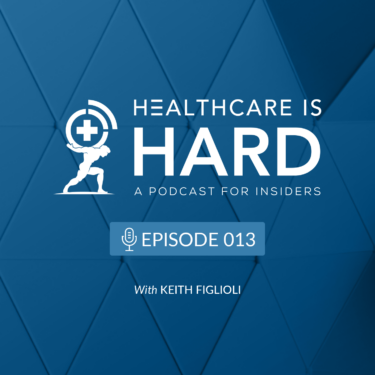Dr. Kevin Tabb fell into medicine through his training as a medic in the Israel Defense Forces, and after medical school and a five year residency, he soon entered the world of healthcare IT. As president & CEO of the newly-formed Beth Israel Lahey Health system, this diverse background gives him a unique perspective to navigate the constantly-changing healthcare landscape where technology continues to play an increasing role.
Dr. Tabb now has a prominent position in the greater Boston area’s storied history of driving healthcare innovation. He’s leading the region’s second-largest health system – including 4,000 physicians and 35,000 employees across academic medical centers, community, and specialty hospitals – formed by the March 2019 merger of the Beth Israel Deaconess and Lahey Health systems, along with Anna Jaques, Mount Auburn and New England Baptist Hospitals.
Creating a single and cohesive point of care will be one of the most important attributes of a successful health system in the future, according to Dr. Tabb. The dynamics of delivering on this promise are especially acute as health systems across the country merge, and it’s a key focus at Beth Israel Lahey Health.
During this episode of Healthcare Is Hard, recorded live on stage at the Digital Health Innovation Summit, Dr. Tabb talks to Keith Figlioli about a number of issues critical to delivering on his vision for a successful, modern health system, including:
- The Build vs. Buy Debate. When it comes to partnerships with new entrants in the healthcare market, new technologies, or other aspects of running a next gen health system, working with third-parties and bringing everything together makes it more difficult to create a cohesive organization. That’s why Dr. Tabb’s preference is to explore internal development first, a luxury large and growing health systems are more likely to have the resources to accomplish. But he recognizes the reality, knowing when and how to investigate if a third party brings something unique that would be too complex to develop in-house.
- Solutions Looking for Problems. With a background in health IT, Dr. Tabb is approached almost daily by various companies and investors and says the majority of what he sees comes from people offering niche solutions to small problems. Unless a solution is focused on the larger challenges associated with helping the different aspects of a health system come together and operate more cohesively, he’s much less likely to be interested.
- Evolving Access Points for Care. The way people access care is rapidly changing. Dr. Tabb compares this shift to the emergence of digital photos and Kodak’s failure to adapt because revenues from film and chemicals weren’t impacted at first. Kodak failed to realize soon enough that pictures can be made in many different ways. And to avoid a similar fate, traditional health systems need to quickly recognize the many different ways and different places care can and should be delivered. They need to adapt and deliver the seamless and unified experience that patients are starting to demand.
- Differences Between the U.S. and Europe. As someone who grew up in California, but served in the military, went to medical school, and did his residency in Israel, Dr. Tabb is frequently asked for his opinion on the biggest differences between U.S. and European healthcare. He points to the lack of a single system of care, and talks about how critical it is to figure out a new approach so people don’t fall through the cracks – especially when they’re sick and most vulnerable.
Ultimately, the one question Dr. Tabb pushes his team to ask above all others is whether or not their decisions will make a difference in peoples’ lives. He says that’s the most important thing to consider and measure, and that’s how Beth Israel Lahey Health will know in five years if the merger was successful.
To hear Dr. Tabb talk about these topics and more, listen to this episode of Healthcare is Hard: A Podcast for Insiders.
